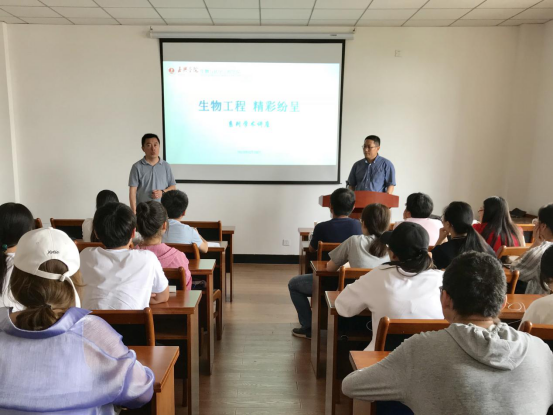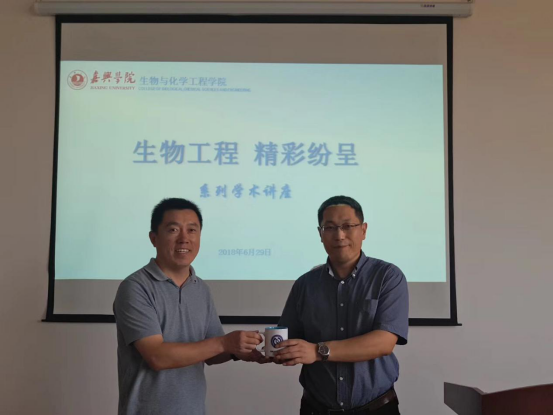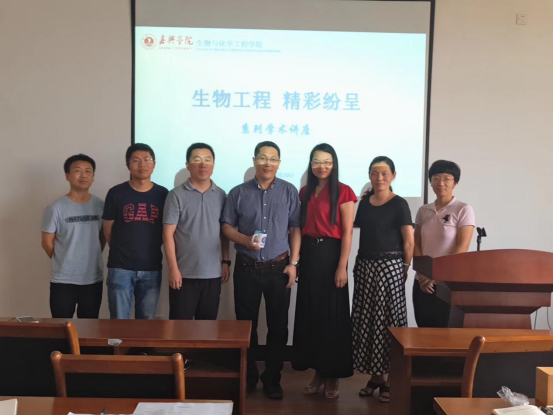6月29日下午,在梁林校区1号楼506学术报告厅,中国科学院赵建国研究员来我院作题为《基因编辑创新猪的育种和生物医学应用》的学术报告。
个人简介:赵建国,中科院“百人计划”引进国外杰出人才,中国科学院动物研究所干细胞与生殖生物学国家重点实验室研究员,中国科学院大学岗位教授,中国科技大学,安徽大学兼职博士研究生导师。主要研究方向为猪功能基因的筛选,基因组编辑猪疾病模型建立和新品种培育。近年来在PNAS,eLife, Blood, J Mol Cell Biol、Hum Genet等期刊共发表SCI论文30多篇。
报告摘要
Domestic pigs are the second most important source of meat world-wide, and the genetic improvement of economic traits, such as meat production, growth, and disease resistance, is a critical point for efficient production in pigs. Pigs (Artiodactyl family Suidae) lack a functional UCP1 gene, resulting in poor thermoregulation and susceptibility to cold and have a tendency toward fat accumulation. We report application of a CRISPR/Cas9-mediated, homologous recombination (HR)-independent approach to efficiently insert mouse adiponectin-UCP1 into the porcine endogenous UCP1 locus. The resultant UCP1 knock-in (KI) pigs showed an improved ability to maintain body temperature during acute cold exposure with decreased fat deposition. UCP1 KI pigs are a potentially valuable resource for agricultural production through their combination of cold adaptation, which improves pig welfare and reduces economic losses, with reduced fat deposition and increased lean meat production.




